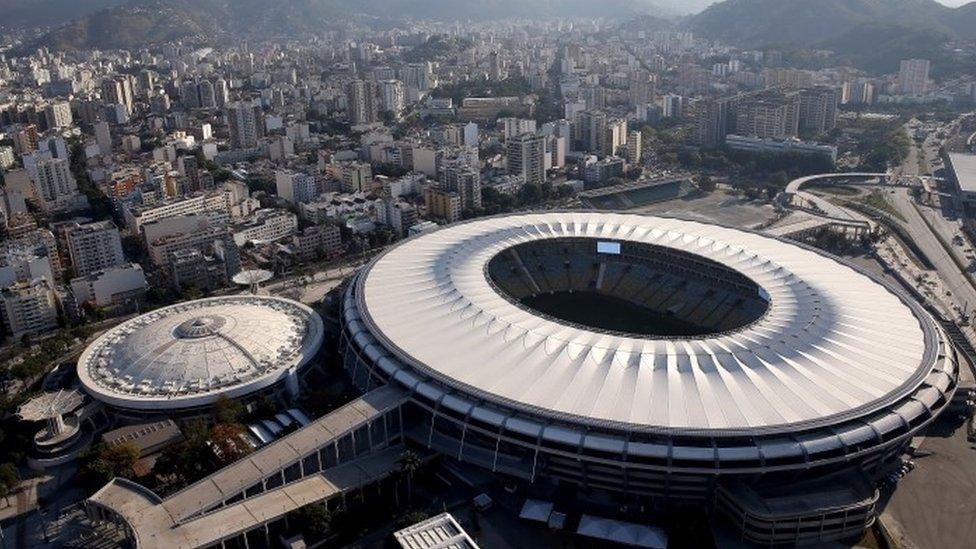Brazil graft probe focuses on World Cup football stadiums
- Published
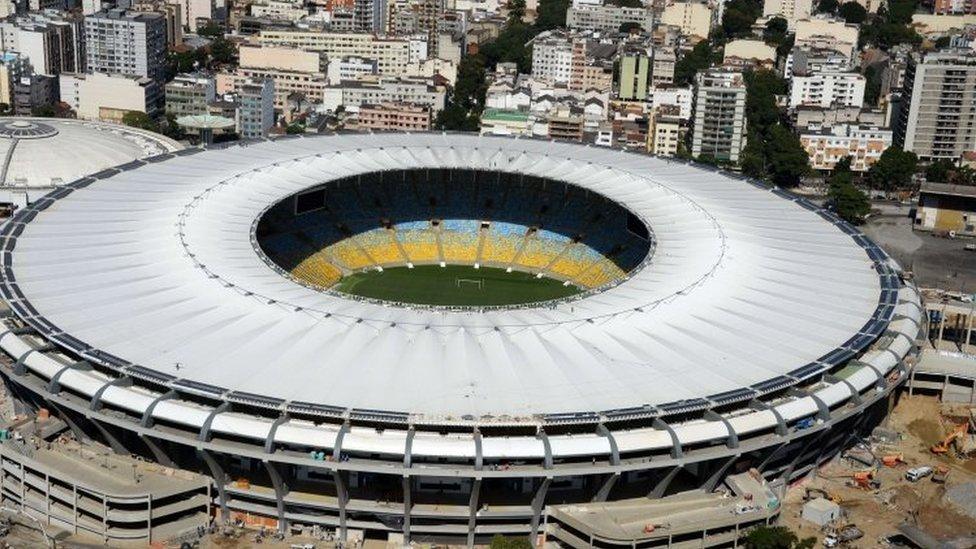
The restoration of the Maracana ended up costing a third more.
Testimony released by the Brazilian Supreme Court alleges that builders and politicians illegally profited from the construction of stadiums used in the 2014 football World Cup.
The plea bargain testimony was given by executives working for Odebrecht - the continent's biggest construction firm.
They claim there were irregularities in the bidding process for six stadiums including the Maracana in Rio.
The latest corruption probe apparently involved almost all political parties.
In the case of the Maracana, the cost of renovation was to have been 700 million reais ($225 million) but eventually went over one billion reais.
Inside the refurbished Maracana
At least five executives out of the 77 who gave evidence confirmed that payments were made to secure what they described as "an unfair advantage associated with work on the Maracana".
The Corinthians stadium in Sao Paulo was going to be much smaller but the cost rose to four times what was planned when it was decided to hold the opening match there.
Irregularities were cited in the testimony at the Corinthians Arena in Sao Paulo, the National Stadium in Brasilia, the Pernambuco Arena in Recife, the Castelao Arena in Fortaleza and the Amazonia Arena in Manaus, along with the Maracana in Rio.
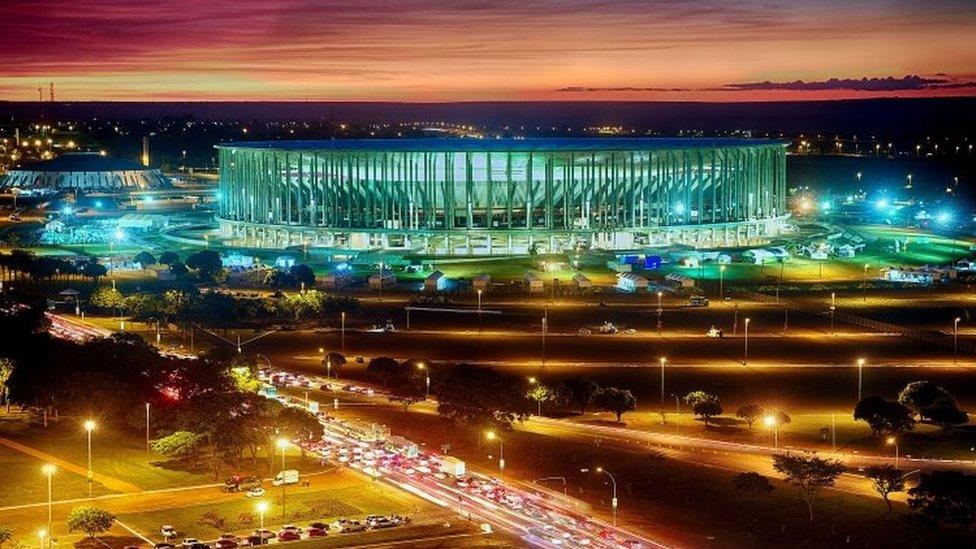
Renovating Brasilia's National Stadium cost 1.4 billion reais ($440 million)
The Odebrecht executives gave their testimony as part of a settlement with US, Brazilian and Swiss authorities in a huge foreign bribery case across Latin America.
Countries across the continent have opened investigations into alleged bribery conducted by Odebrecht to win large infrastructure projects.
The company's methods first came to light during investigations in Brazil into a giant corruption scandal centred on the country's state oil company, Petrobras.
In July 2015 Marcelo Odebrecht, whose grandfather founded the company, was formally charged with corruption and money laundering, and accused of paying millions of dollars in bribes to senior officials at Petrobras.
Last year the company agreed to pay at least $3.5bn (£2.8bn) to the authorities in the US, Brazil and Switzerland after admitting to bribing officials to secure contracts.
Its executives signed a deal to co-operate with the investigation into Petrobras - known as Operation Car Wash by naming politicians involved in the kickback scheme.
- Published12 April 2017
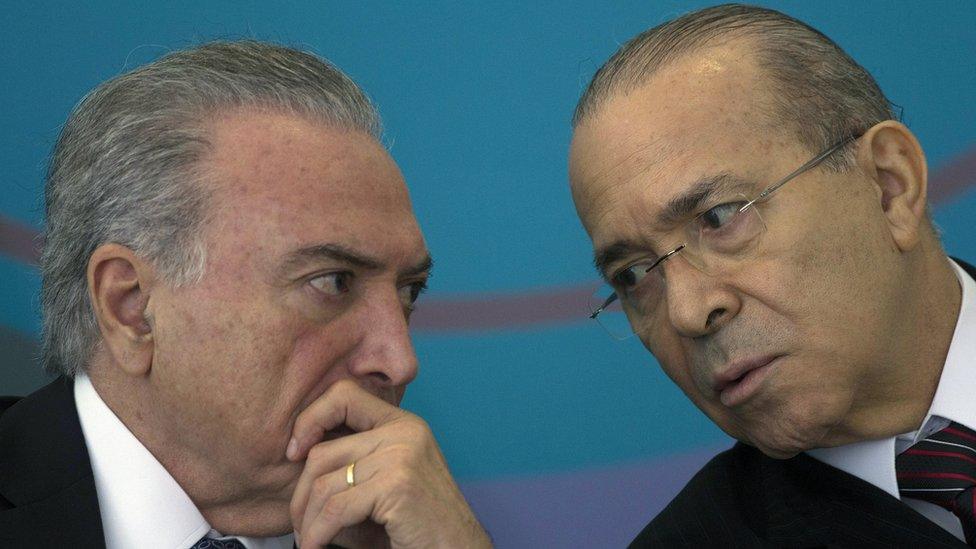
- Published17 April 2019
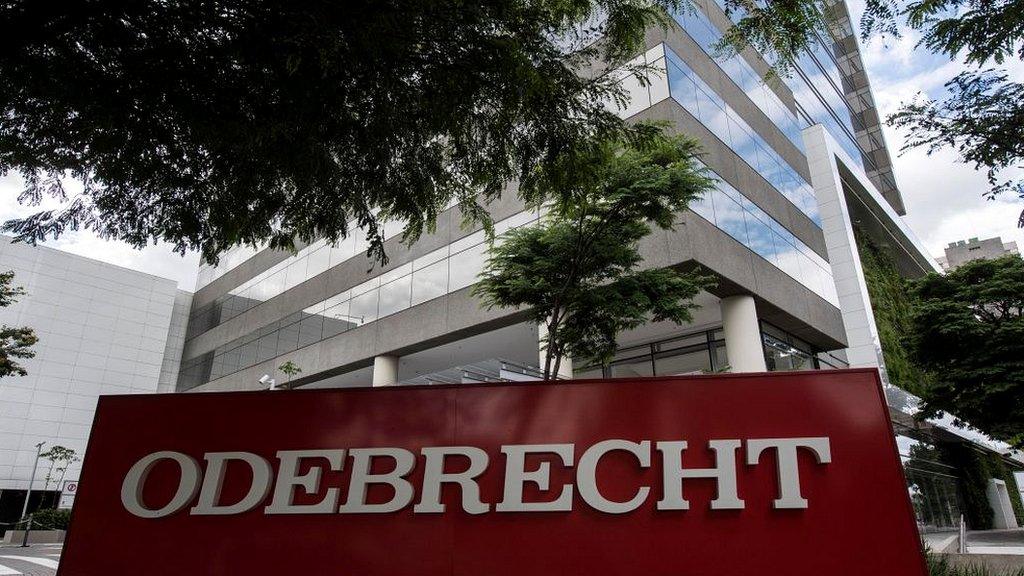
- Published11 January 2017
